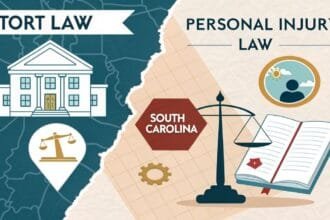Many Illinois parents struggle with child support, especially after a divorce. The tax consequences of child support payments can have a major effect on your finances and should not be ignored. You may be curious about the tax implications of child support if you pay or receive it in Illinois.
This article will provide a summary of the tax ramifications of altering child support payments in the state of Illinois, as well as the federal and state tax regulations pertaining to child support. This page will help custodial parents (those who receive child support) and noncustodial parents (those who pay child support) in Illinois understand the complicated relationship between child support and taxation.
Tax Implications of Child Support in Illinois

Federal Tax Laws Governing Child Support
Child support payments are not deductible by the paying parent (the noncustodial parent) and are not considered taxable income for the custodial parent under federal tax law (custodial parent). This means that neither parent’s tax situation will change as a result of child support payments.
Nonetheless, spousal support (commonly known as alimony) paid by the noncustodial parent is tax deductible by the payer and taxable income to the custodial parent. Payments should be clearly designated and documented as either child support or alimony to avoid misunderstandings.
How Child Support Affects State Taxes in Illinois
In Illinois, a parent who receives child support does not have to report the money as income and the person who pays it does not get a tax break. The state does not take into account child support payments when determining a parent’s tax liability.
Tax Considerations for the Custodial Parent
Child support payments are not considered income for tax purposes and so do not need to be reported by the custodial parent. The custodial parent, however, must remember a few tax details. The custodial parent may be eligible for tax credits or deductions if, for instance, they utilize child support payments to pay for qualified medical expenditures or child care. The custodial parent should keep careful financial records and seek the advice of a tax expert to see whether or not they qualify for any tax breaks.
Tax Considerations for the Noncustodial Parent
The noncustodial parent is not eligible to deduct child support payments from their taxable income. Nonetheless, the noncustodial parent should be aware of some tax implications. The noncustodial parent may be eligible for a tax deduction for child support payments if, for instance, they are also paying spousal support.
In addition, the noncustodial parent may qualify for tax credits like the Child Tax Credit or the Earned Income Tax Credit if they have custody of the kid for a portion of the year. The noncustodial parent should consult a tax expert and keep meticulous records of all custody arrangements in order to maximize any potential tax benefits.
Also See: Understanding Child Support in Texas: An Overview of the Basics
Tax Credits and Deductions for Child Support in Illinois
Eligibility for the Child Tax Credit in Illinois
Each child under the age of 17 may be eligible for a maximum federal tax credit of $2,000. The Child Tax Credit is only available if the qualifying child is a U.S. citizen, resident, or national and has resided with the taxpayer for more than half the year. It’s also required that the taxpayer has paid for more than half of the child’s living expenses that year.
The Illinois state income tax can be reduced by the amount of the Child Tax Credit claimed. At a maximum of $750 per kid, the credit is equal to 5% of the federal Child Tax Credit for the first child and 4% for each successive child. The federal Child Tax Credit must be claimed before the Illinois version can be claimed.
Dependency Exemptions for the Custodial Parent
A taxpayer’s taxable income can be reduced by the number of exemptions claimed for dependents. Unless otherwise agreed upon, the custodial parent has the legal right to claim the kid as a dependent for child support purposes.
Due to changes in federal tax law, the Illinois dependent exemption is no longer available for tax years beginning in 2019. Although the Child Tax Credit has essentially superseded the dependent exemption, the federal government still allows for one.
Eligibility for the Earned Income Tax Credit
Low- and middle-income working people and families may qualify for the Earned Income Tax Credit (EITC), a federal tax benefit. To the extent that the EITC exceeds the taxpayer’s tax burden, any amount over the latter will be refunded to the taxpayer.
Earned income through employment, self-employment, or other qualifying sources is required to claim the EITC. In addition, they need to meet rules for their income and assets and not file as a couple of filing separately.
The Earned Income Tax Credit in Illinois is 18% of the federal credit, up to a maximum credit of $1,148. Taxpayers in Illinois must first file for the federal EITC before they may get the state’s version.
Child Support and Illinois State Taxes
State Income Tax Deduction for Child Support
Noncustodial parents cannot claim a deduction for child support payments on their federal or state tax returns. Furthermore, the custodial parent does not have to report child support payments as income on their federal or state tax returns.
Illinois Taxation of Child Support Payments
For state tax reasons, Illinois treats child support payments in the same manner that the federal government does. As a result, the custodial parent cannot claim child support payments as income and the noncustodial parent cannot deduct them from their state income tax.
But, Illinois residents who pay child support may be eligible for a tax credit. The Illinois Child Tax Credit, for instance, can be utilized to reduce a person’s tax bill in that state. In addition, the noncustodial parent may qualify for tax credits like the Child Tax Credit or the Earned Income Tax Credit if they have custody of the kid for a portion of the year.
Illinois Child Support Tax Changes
Illinois child support payments may be affected by federal tax reform. For instance, if the federal government were to modify the Child Tax Credit or the Earned Income Tax Credit, either the custodial or noncustodial parent might get a different amount in tax benefits.
Child support payments in Illinois may be affected by recent changes to the state’s tax code. The tax benefits were available to taxpayers who pay child support may be affected, for instance, by changes to the Illinois Child Tax Credit or other state tax credits.
Child Support and Federal Taxes
Child Support Taxation at the Federal Level
At the federal level, the custodial parent is not required to report child support payments as income. Also, noncustodial parents cannot deduct child support payments from their federal income tax.
Federal Income Taxes and Child Support
Neither the custodial nor the noncustodial parent will see an increase or decrease in their federal tax liability as a result of paying child support. Yet, taxpayers who contribute to a child’s support payments may qualify for tax breaks.
For families with children under 17, the federal government offers the Child Tax Credit, which can be worth up to $2,000. A kid must have lived with the taxpayer for more than half the year and the taxpayer must have supplied more than half of the child’s financial support for the year for the child to be eligible for the Child Tax Credit. The Child Tax Credit is normally claimed by the custodial parent unless the custodial parent has consented to allow the noncustodial parent to do so.
In addition, working people and families with low to moderate incomes may qualify for the Earned Income Tax Credit (EITC), a federal tax benefit. Earned income through employment, self-employment, or other qualifying sources is required to claim the EITC.
In addition, they need to meet rules for their income and assets and not file as a couple of filing separately. For the purposes of the EITC, child support payments are not considered earned income.
Illinois Taxation of Child Support Payments
For state tax reasons, Illinois treats child support payments in the same manner that the federal government does. As a result, the custodial parent cannot claim child support payments as income and the noncustodial parent cannot deduct them from their state income tax.
But, Illinois residents who pay child support may be eligible for a tax credit. The Illinois Child Tax Credit, for instance, can be utilized to reduce a person’s tax bill in that state. In addition, the noncustodial parent may qualify for tax credits like the Child Tax Credit or the Earned Income Tax Credit if they have custody of the kid for a portion of the year.
Illinois Child Support Modification Taxes
Tax Implications of Modifying Child Support
Both the custodial and noncustodial parent may face tax consequences if child support is modified. The noncustodial parent’s tax deduction goes up, and the custodial parent’s taxable income goes down, if the modification raises the amount of child support that must be paid.
On the other hand, if child support payments were to fall, the noncustodial parent’s tax deduction may reduce while the custodial parent’s taxable income might rise.
Parents should seek the advice of a tax expert before making any changes to child support payments.
Retroactive Child Support Tax Treatment
It is generally accepted that for tax purposes, retroactive child support payments are to be regarded no differently than normal child support payments.
Retroactive child support payments are not taxable income for the custodial parent. Retroactive child support payments are not tax deductible for the noncustodial parent.
Child Support Changes and State and Federal Taxes
Changing child support may have federal and state tax implications. The noncustodial parent may be eligible for a higher tax deduction for child support payments on their federal and state income tax returns if the adjustment resulted in an increase in child support payments. Furthermore, the custodial parent’s taxable income may go down, resulting in a lower state income tax bill.
If the non-custodial parent’s child support payments go down as a result of the change, the non-custodial parent may get a lesser tax break on their federal and state tax returns. The state income tax liability of the custodial parent may also rise if they see an increase in their taxable income.
Frequently Ask Questions
Q: Are child support payments tax-deductible in Illinois?
A: No, child support payments are not tax-deductible in Illinois.
Q: Do I have to pay taxes on the child support I receive in Illinois?
A: No, child support payments are not considered taxable income in Illinois.
Q: Can I claim my child as a dependent on my Illinois state taxes if I receive child support?
A: It depends on the custody arrangement. Generally, the custodial parent is eligible to claim the child as a dependent on their taxes. However, if the noncustodial parent has been granted the right to claim the child as a dependent, they may do so.
Q: How does child support impact my federal income taxes in Illinois?
A: Child support payments are not considered taxable income at the federal level, and therefore do not impact your federal income taxes.
Q: Can I claim the child tax credit in Illinois if I receive child support?
A: Possibly. The custodial parent may be eligible to claim the child tax credit if they meet certain income requirements and other criteria. However, the noncustodial parent may be eligible to claim the child tax credit if they have been granted the right to claim the child as a dependent.
Q: Can I deduct child support payments from my Illinois state taxes?
A: No, child support payments are not deductible on your Illinois state taxes.
Q: Do I have to pay taxes on retroactive child support payments in Illinois?
A: Retroactive child support payments are generally treated the same as regular child support payments for tax purposes. They are not considered taxable income and are not deductible.
Q: Can I modify child support payments without impacting my taxes in Illinois?
A: It depends on the modification. If you modify child support payments, it could impact your taxes, particularly if the modification changes the amount of child support paid or received. It’s important to consult with a tax professional and an attorney before making any modifications to your child support agreement.


